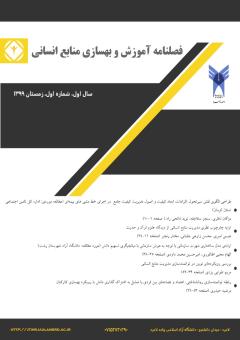Designing a knowledge management model based on the organizational learning approach, a case study of Mazandaran University of Medical Sciences
Subject Areas : title1Mehdi Dehghannezhad 1 , mokhtar ranjbar 2 , Alireza Peivand 3 , Sanjar Salajagheh 4
1 - PhD student in management of Islamic Azad University, Kerman branch
2 - Department of Management, Lamard Branch, Islamic Azad University, Lamard, Iran
3 - Member of the academic staff of Islamic Azad University, Kerman branch
4 - Member of the academic staff of Islamic Azad University, Kerman branch
Keywords: Knowledge management, organizational learning, University of Medical Sciences, strategies and consequences, mental models.,
Abstract :
Background and purpose: The present research has studied the factors of knowledge management model with organizational learning approach in Mazandaran University of Medical Sciences. Materials and methods: The research method of the current study is descriptive and exploratory, and by using the interview and questionnaire technique, it aims to identify the factors of the relevant payment model. Therefore, the present research first identified the experts by snowball technique, which is equal to 15 people, then by holding half-hour interview sessions with each of the experts, the factors were identified and then by using interviews. Delphi technique packages were implemented in the research. Findings: Its results have led to the identification of factors and variables related to the model, which include causal conditions, background, main category, interveners, consequences, and strategy. Conclusion: Based on the implementation of the Delphi technique, it was determined that each of these variables has sub-components that include individual skills, mental models and communication respectively, the second variable includes the desire to strengthen, teaching and learning, the third variable is awareness and common vision, systemic determinism and delegation, the fourth variable of corporate factors, economic factors, political factors, cultural factors and structural factors, the fifth variable of knowledge enhancement, environmental adaptation, social learning, group experience, the sixth variable of systemic thinking, team learning, Common links are intellectual capital management and performance evaluation.


